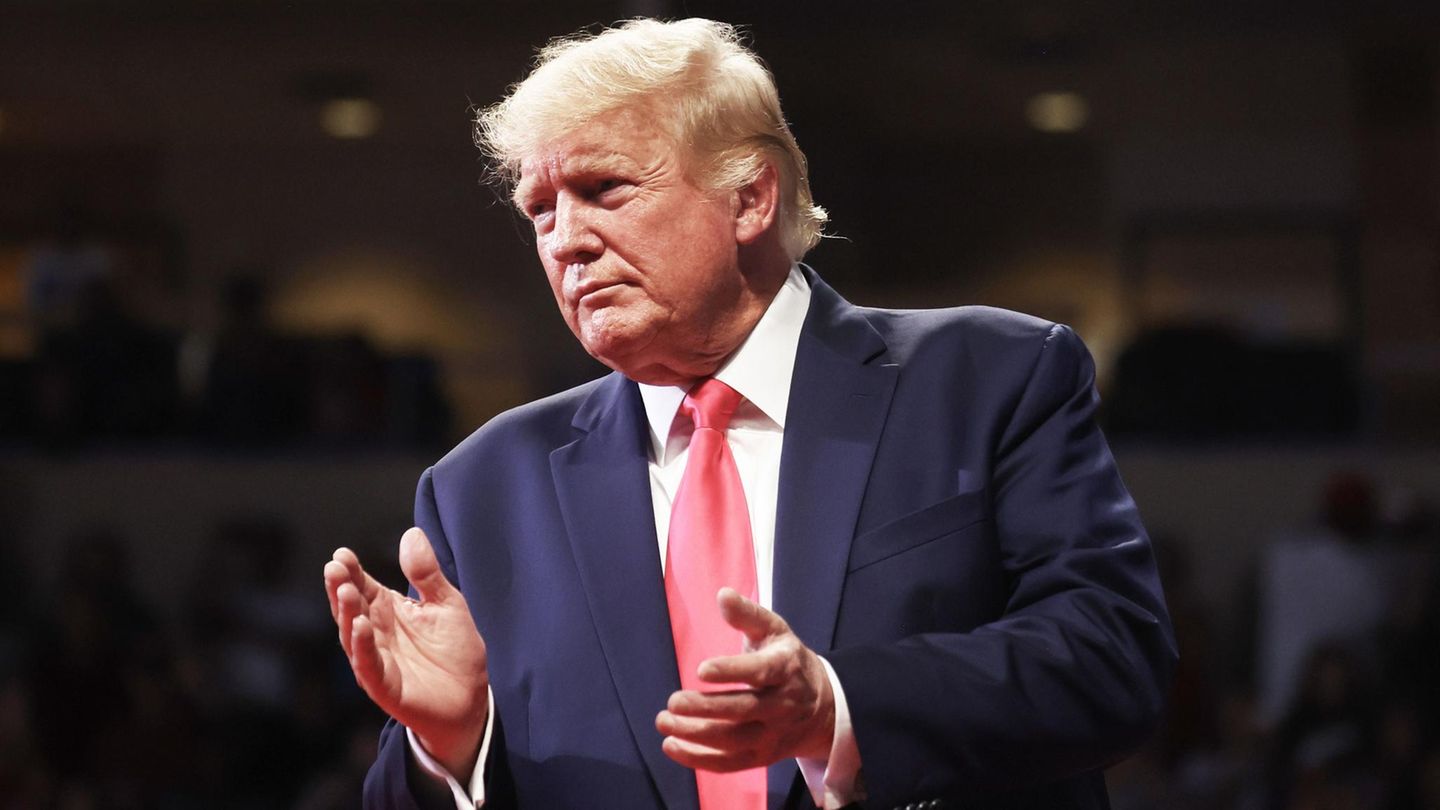The FBI has seized several top-secret documents from former US President Donald Trump. A highly explosive process – which could have far-reaching consequences. The most important questions and answers.
Anyone who had hoped that Donald Trump would one day quiet down has had a hard time swallowing, especially in the past few days.
Even after leaving the White House, the former US President still produces all sorts of headlines, whether with his radical castling in order to stay in power or his obviously dubious business practices as an entrepreneur. His escapades are not only part of the coverage, but also the subject of some criminal investigations.
And the stream of ominous reports for the ex-president does not stop. Federal police seized top-secret documents during a search of Trump’s Florida home. The former president could have violated the espionage law, among other things, for Trump it could now be serious again. But one by one.
What happened?
Trump has had a turbulent week. On Monday, the FBI was on the mat of his Mar-a-Lago estate in Palm Beach, Fla., while the homeowner was in New York looking for classified government documents. The process is considered unprecedented in US history, since . In view of the public pressure, US Attorney General Merrick Garland personally intervened on Thursday: He had the decision to apply for a search warrant. And since Friday we’ve also known why: During the raid, several top-secret documents were confiscated, and the search warrant lists three possible criminal offenses as the basis for any confiscation.
What was confiscated?
A total of eleven sets of documents, some of which are classified as “top secret”. This emerges from the receipt for the confiscated items, which a court in the US state of Florida published together with the search warrant at the request of the US Attorney General.
According to the FBI list, agents at Trump’s home found:
- A set of Top Secret/SCI documents that are top secret and can only be viewed in special government facilities.
- Four of the confiscated sets of documents were classified as “Top Secret”.
- Three more as “secret”, the remaining three as “confidential”.
Unsurprisingly, the list does not reveal what is in the secret documents. The reported on Friday that the FBI was also looking for classified documents about nuclear weapons. Trump denied this and called the report a “hoax”.
Apparently not all confiscations have the same meaning as the secret documents. According to the published list, the agents also seized:
- A pardon for Trump’s confidante Roger Stone.
- Unspecified information on the “President of France”, i.e. Emmanuel Macron.
- Two photo albums.
- And numerous boxes.
What allegations are there?
The search warrant () lists three criminal offenses that the Department of Justice is investigating as possible basis in its investigation:
- Violations of the Espionage Act. To be more precise: the collection, transmission or loss of information related to national security – and thus harming the USA and, in case of doubt, could be of use to foreign actors. The offense can be punished with up to ten years imprisonment.
- obstruction of justice, such as destroying or hiding documents to disrupt an ongoing investigation. If convicted, he faces up to 20 years in prison.
- Criminal handling of government records by destroying federal documents. The offense is punishable by a fine or imprisonment of up to three years and can also bar those convicted from holding future political offices.
The inclusion of the possible criminal offenses indicates that the Department of Justice has at least a likely reason to investigate them, as the and report. These are therefore more reliable assumptions. There is no charge yet.
How serious are the allegations?
According to Trump, everything is not so wild, he released all confiscated documents before leaving office, according to a statement. However, that may not matter, as she notes: Two of the offenses listed in the search warrant would be a crime – regardless of whether they had anything to do with national security or whether documents were classified as classified.
It is still unclear how reliable the confiscated material is. Either way, the raid is remarkable. Already at the beginning of the year. The current confiscations show that Trump possessed other secret documents. Against this background, the fact that they were accidentally kept seems at least questionable.
It therefore obviously plays a not inconsiderable role which legal paragraphs were used as the basis for the searches. The . Instead, and were cited, which deal on the one hand with the “destruction, alteration or falsification of records in federal investigations” (1519) and on the other with the “concealment, removal or mutilation” of documents (2071). “This suggests that the administration has reason to believe that President Trump has done more than just hold on to these documents,” the newspaper quoted Stephen Vladeck, a law professor at the University of Texas.
What does the White House say?
In short: practically nothing, probably out of certain calculations. Apparently, the impression should not be created that the White House has anything to do with the investigations or even exerts any influence – an accusation that Trump made in the course of the searches.
President Joe Biden was not given advance notice of the search, his press secretary Karine Jean-Pierre said, nor was he forewarned that the Justice Department would release the search warrant, the reported, citing an official.
During his presidential campaign, Biden promised to restore confidence in the independence of government and the judiciary after the turbulent Trump years. The obvious concern: If Biden were to comment on the investigation, this could fuel Trump’s narrative that he is being politically persecuted.
And so his spokeswoman also emphasized: “President Biden made it very clear before his election as president and throughout his tenure that the Department of Justice conducts its investigations independently,” Jean-Pierre was quoted as saying by the “New York Times”. “He believes in the rule of law.”
And what is Donald Trump doing?
There are still more questions than answers about the searches – and Trump is trying to use this situation for himself. Among other things, but without presenting any evidence for this. For days, Trump and his followers have been spreading the tale that his possible presidential candidacy in 2024 should be torpedoed. Most recently, he tried a diversionary maneuver that quickly came to nothing: he claimed that his predecessor Barack Obama had also removed secret documents – a.
What’s next? Only this much seems certain: the former US President is likely to produce all kinds of headlines in the next few days.
Source: Stern
David William is a talented author who has made a name for himself in the world of writing. He is a professional author who writes on a wide range of topics, from general interest to opinion news. David is currently working as a writer at 24 hours worlds where he brings his unique perspective and in-depth research to his articles, making them both informative and engaging.




